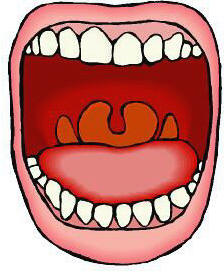ANOINTING
INTRODUCTION
The title of my homily for this 2nd Tuesday in Ordinary Time is, “Anointing.”
TODAY’S FIRST
READING
Here in today’s
first reading from the First Book of Samuel 16: 1-13, Samuel
is told to “fill your horn with oil” and anoint as king - the one I have chosen
to take over after Saul’s death.
I remember attending
an evening lecture by a rabbi in New York City. It was all about David. The
speaker gave example after example, how descendent and followers of David
- gave him great press in the Jewish Bible - which we call the Old Testament.
The main thought from this rabbi in his talk was: the power of the pen in
rewriting history.
Today’s story is
great storytelling. I love the question: “Are these all the sons you
have?” I can hear the brothers standing there saying, “What are we
chopped liver?”
In today’s reading
we hear all about how kings were anointed in Saul and David’s time. Part of the
ceremony was an anointing with oil.
And this practice of
anointing will flow into our scriptures, the New Testament, when the authors
want to present Jesus as the new David. Notice Bethlehem in today’s
first reading from the first Book of Samuel.
CHRIST MEANS
ANOINTED
And we know that
Christ means the Christened One - the Anointed One.
And we know that at
our baptism - our Christening - oil is used - not just water. In baptism,
we are anointed two times with oil. Then there is another anointing at our
confirmation in our faith.
THE STUFF OF
CEREMONY
We know that as humans we are ceremony people.
We kiss babies. We
baptize babies. We shake hands, bow or hug when we meet. We have symbolic ways
of swearing someone in as president or mayor or head of the Elks or Knights of
Columbus.
We have all been at
ceremonies where set gestures and behaviors take place. We’ve seen presidents
sworn - one hand raised, one hand on a Bible - as well as some in a jury room.
OIL FOR EXAMPLE
And if we think
about it, symbols and gestures need to fit what they symbolize - with what's
going on - with what's taking place.
Think about oil: what it is, what it does.
Oil helps machines work better.
Oil is also healing
agent.
Go into any CVS store and you’ll see all kinds of hand creams, lip balm, oils for healing. Our hands get chapped during this cold weather and we go to that section of the store for something with oil and the healing magic in it.
I’m sure they find some kind of oil on the hands and feet of these bodies from 5000 BC in frozen tundras of northern Norway or Siberia.
As priest it means a
lot to me to visit someone who is sick and anoint them.
But like receiving
Communion or doing a funeral or a wedding, a religious ceremony that uses oil,
the oil has to fit the reality of being touched and anointed.
CONCLUSION
In other words, as we heard in today's first reading, what is going on must be more than appearance, but from the heart. As we heard in today's gospel, we don't do things to enhance and to keep some law, but we do what brings new life. Amen.









